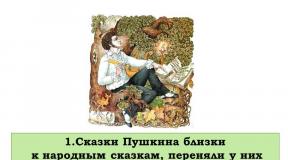Information on the income of civil servants for the year. Declaration of income of civil servants: instructions for filling out. Video – Educational film “Filling out income certificates”
Russian President Vladimir Putin earned 18 million 728 thousand 268 rubles in 2017. His income in 2017 increased by 9 million 869 thousand 836 rubles compared to the previous year, when he earned 8 million 858 thousand 432 rubles. The average monthly income of the president last year was 1.5 million compared to 738 thousand rubles a year earlier.
In Putin’s declared property, as follows from the document, there is no longer a land plot of 1.5 thousand square meters. The rest of the real estate - an apartment of 77 square meters and a garage of 18 square meters - remain the same. The president also uses an apartment of 153.7 square meters and a garage space of 18 square meters. All these objects are located in Russia.
The President is the owner of two rare Volga GAZ M21 cars, a Niva SUV and a Skif trailer.
In 2013, the president’s salary was more than 3.6 million rubles, in 2014 - 7.6 million (more than a two-fold increase was due to a decree increasing the monetary remuneration of the president and prime minister of Russia, whose salaries at that time lagged behind the income of their subordinates) , in 2015 - about 8.9 million rubles, in 2016 - 8.85 million rubles.
Prime Minister's income
Russian Prime Minister Dmitry Medvedev earned 8 million 565 thousand 296 rubles 33 kopecks in 2017. This is 21.6 thousand rubles less than in 2016, when the income of the chairman of the government amounted to 8 million 586 thousand 974 rubles. The head of government presented such information in his income statement published on the official website of the Cabinet of Ministers.
As the government staff explained to TASS, “in addition to the basic income (salary), information on income presented in the table [information on income, expenses, property published on the website] always includes the amount of interest on bank deposits.” “A slight decrease in Medvedev’s total annual income in 2017 compared to 2016 is due to a decrease in income from interest on bank deposits,” the agency’s interlocutor said
In 2012, Medvedev earned 5.8 million rubles, in 2013 - 4.3 million, in 2014 - 8.5 million rubles (after increasing monetary remuneration by presidential decree), in 2015 - 8.8 million rubles.
Judging by the declaration, the monthly salary of the head of the Cabinet of Ministers last year was approximately 714 thousand rubles.
There are no other changes in the declaration: neither for movable nor immovable property.
Real estate and transport
Medvedev is still the owner of an apartment (in Russia) with an area of 367.8 square meters. Exactly the same apartment is also in use by his wife Svetlana. In addition, under a lease (for a period of 49 years), the prime minister owns a land plot of 47 acres, also located within Russian territory.
Medvedev, as before, has at his disposal two rare passenger cars - the GAZ-20 Pobeda, produced in 1948, and the GAZ-21 Volga, produced in 1962. His wife owns a 1999 German Volkswagen Golf. Svetlana Medvedeva also owns two parking spaces with a total area of 32.5 sq. m.
According to the declaration, last year, as before, the wife of the prime minister did not receive any income.
The only son of the Medvedev couple, Ilya, is an adult, and therefore his parents do not provide information about his income and property to the tax authorities.
Income of Civil Servants of the Russian Federation
Deputy Prime Minister Alexander Khloponin earned the most money in the Russian government in 2017. According to information on income, expenses and property published on the government website, his income amounted to 2,912,121,655 rubles.
According to the results of the 2016 declaration campaign, his income was significantly lower - 9.9 million rubles. Thus, the Deputy Prime Minister’s income increased almost 293 times, which is 340 times more than Prime Minister Dmitry Medvedev earned, who declared 8.5 million rubles. Thus, Khloponin’s daily income was 7.9 million rubles.
Such a significant difference in income in Khloponin’s apparatus was explained by the sale of part of the real estate. “If you compare the declarations for 2017 and 2016, you will see that there have been changes in the list of real estate assets,” his press secretary Natalya Platonova told TASS. “This is precisely what explains the increase in income last year. This is due to the sale of real estate abroad in 2017.” According to data for 2016, Khloponin owned a house with an area of 800 square meters and a plot of land of 82 acres in Italy. These objects are not included in the declaration for last year.
A year ago, the leader of the ranking of the wealthiest members of the government was the head of the Ministry of North Caucasus Affairs, Lev Kuznetsov. According to the declaration, his income was 582 million 146 thousand rubles. This time he did not make it into the top three.
In second place after Khloponin based on the results of the 2017 declaration campaign is the Minister of Agriculture Alexander Tkachev, whose declaration shows the amount of 548.2 million rubles. His income for the year grew almost a hundred times from 5.6 million.
“Income of 542.75 million rubles. arose in connection with the payment of dividends on securities received in 2017 as a gift from her mother in connection with her illness,” explained the press service of the Ministry of Agriculture. “The securities were transferred to trust management in full accordance with the procedure established by the legislation of the Russian Federation,” the press service noted.
In third place in terms of income in 2017 is Deputy Prime Minister Yuri Trutnev, who declared 377.2 million rubles. Minister of Natural Resources and Environment Sergei Donskoy (5.2 million rubles), Minister of Communications and Mass Media Nikolai Nikiforov (5.8 million rubles) and Minister of Labor and Social Development Maxim Topilin (5.9 million rubles) earned the least last year. .
Leaders in terms of income in the Kremlin
The head of the Russian Presidential Administration, Anton Vaino, became the leader in the Kremlin in terms of income for 2017 - 255 million 839 thousand 086 rubles, which is almost 14 times more than that of the head of state Vladimir Putin (18 million 728 thousand 268 rubles). The assistant to the President of the Russian Federation, Natalya Melikova, earned the least - 4 million 502 thousand 881 rubles. Declarations by the heads of the Russian Presidential Administration are published on the Kremlin website.
Vaino’s income last year increased 26.5 times compared to 2016, when he received 9.64 million rubles. In the declaration of the head of the Kremlin administration, two new real estate properties appeared - land plots with an area of 5748 and 6058 sq.m. on Russian territory. In the column “information about the sources of funds at the expense of which the transaction was completed,” it is reported that the land plots were acquired “through the sale of a house and a plot of land.” Judging by the income statement for 2016, we are talking about a land plot with an area of 2840 sq.m. and a residential building with an area of 454.2 sq.m. on Russian territory.
In second place in the Russian Presidential Administration in terms of income was Nikolai Tsukanov, assistant to the head of state for local self-government issues, with 41 million 206 thousand 428 rubles. In third place is Secretary of the Security Council Nikolai Patrushev, who declared income for 2017 of 33 million 584 thousand 339 rubles.
Press secretary of the head of state Dmitry Peskov announced income in 2017 at 14 million 342 thousand 661 rubles (12.8 million rubles in 2016).
The financial situation of the Presidential Commissioner for Children's Rights, Anna Kuznetsova, has significantly improved, who in 2016 showed the most modest earnings in the Kremlin - about 2.8 million rubles. Her current declaration shows the amount of 5.7 million rubles.
On the contrary, First Deputy Head of the Presidential Administration of the Russian Federation Sergei Kiriyenko, who at the end of 2016 was the leader in the Kremlin in terms of income (85 million 486 thousand 900 rubles), “lost ground” in 2017, earning 33 million 266 thousand 923 rubles. However, in 2016, Kiriyenko worked in the Kremlin for only three months, and for most of the year he served as head of the state corporation Rosatom.
Income and Asset Reports
The procedure for officials to publish information about their well-being has been in effect in Russia for more than one year. High-ranking civil servants and parliamentarians are required to report on income, expenses and property annually until April 1 inclusive (for ordinary officials this period expires on April 30), and after processing the declarations, this information is published on the official websites of the relevant authorities.
A presidential decree on the procedure for posting information on the income and property of civil servants and members of their families on official websites of government bodies and in the media was signed in 2009.
In 2013, a law came into force according to which officials and parliamentarians must report not only on income, but also on large expenses - on each transaction for the acquisition of land, real estate, cars, securities and shares, if the amount exceeds the total income of the civil servant and his spouse for the last three years. It is also necessary to talk about the sources of funds through which the purchase was made. In the same year, a ban was introduced on the ownership of bank accounts and financial instruments abroad by officials, parliamentarians and candidates for elected office. In this case, the presence of foreign real estate is allowed, but all of it is subject to declaration.
The civil servants declaration register is a system for collecting information on the income, expenses and property of public representatives of the country. The introduction of such a provision is due to the UN Convention on Corruption and Anti-Violations.
Legislative acts regulate the relationship between the tax service and officials who submit information to declare their earnings. Also, bodies that conduct inspections upon detection of inconsistencies in submitted documents.
The transfer of data on property, movable and immovable, income, including from abroad, is carried out every year; fines and prosecution are provided for lately filed and completely missing declaration acts.
Why declare income
On the territory of the Russian Federation, Federal Law No. 273 “On Combating Corruption” is in force, which states that in addition to civil servants, members of their families are also required to submit declarations, which accurately display information about the movement of income, property and property-type obligations.
By decree of the President of the Russian Federation, income, securities and property abroad are subject to declaration until April 30 of this year for the past period. The report is submitted every year. All types of receipt of funds by officials are subject to reporting for the transparency of the system, and monitoring of corrupt practices.
The Anti-Corruption Center conducts checks upon presentation of the declaration to ensure the completeness of the information specified in it. Thus, in case of illegal enrichment, a public person without reason is subject to criminal punishment. All discrepancies are identified, thoroughly checked, and the results are published on the Federal Tax Service website.
Where can I view information?
Employees of public services are required to declare their income in accordance with the order of the President of the Russian Federation.
These include employees:
- the President's Office;
- federal chambers and assemblies;
- government;
- employees of the Ministry of Internal Affairs and the Ministry of Emergency Situations;
- executive authorities;
- judicial system;
- federal customs units;
- FSB and FSO.
 Every year, data is posted on the Federal Tax Service website on earnings and other property of government officials, as well as their families. Also, each of the civil service organizations must post on the websites of their departments detailed information on the declaration of their employees, as well as their family (spouse, children, including minors).
Every year, data is posted on the Federal Tax Service website on earnings and other property of government officials, as well as their families. Also, each of the civil service organizations must post on the websites of their departments detailed information on the declaration of their employees, as well as their family (spouse, children, including minors).
The register of declarations of civil servants is an automated system, updates of which occur once a year, divisions by areas of employment, regions, lists of the largest incomes of officials and their spouses - this is something to which access is constantly open. Discrepancies in the data provided and their amount are also displayed in the register.
How to fill it out correctly
The legislation of the Russian Federation sets the deadline for submitting a tax return for officials on April 30 of each year; if it falls on a weekend, it is automatically transferred to the next working period.
Formation of certificates for each family member, in accordance with Presidential Decree No. 82 dated January 22, 2017, must be done in the BC Help software. If a married couple is divorced, and the decision to dissolve the marriage came into force a month later, earlier than December last year, there is no point in filling out a certificate of income for the spouse.
It is not necessary to visit the authorities. You can fill out the reporting form on the official website of the tax service, by registering in your personal account; you will also need an electronic digital signature. The document can be presented in paper or electronic form. Drawing up on official letterhead is possible using the “Declaration” program.
To enter the taxpayer’s personal account, details are required, which can be obtained from the tax service at any branch. You must present your passport and a copy of your Taxpayer Identification Number (TIN). Or using the Unified Identification and Authorization data and its access details to enter the “Public Services” website.
If the deadlines for submitting documentation and paying taxes are violated, you will be subject to a fine of 5% of the amount of tax that was not paid. Failure to provide documents may result in a fine of more than 1,000 rubles.
Sample and declaration form
According to Presidential Decree No. 460 of June 23, 2014, all divisions of state apparatuses are subject to declaration annually, and are documented in the form of a certificate of income.
Declaration of income of officials occurs on the form 3-NDFL, which displays personal information and 2 sections. The form itself has 3 categories to fill out, which apply to the applicant himself, his spouse, and his children, including minors.
For each person the following information is indicated:
- Personal passport details (full name, date of birth and place).
- The name of the institution where the employment contract was concluded.
- Family composition.
- The time period for which the report will be presented.
- Sources of income, bank account balances, their amounts and the cost of purchasing assets.
- Property and vehicles owned.
- Availability of deposits.
- Credits, loans (long-term and short-term).
You can download the declaration form and sample filling directly on our website.
The declaration must be submitted by April 30, except for employees of the Presidential Administration, The document must be submitted before April 1. Regardless of work activity or vacation, also maternity leave, it is necessary to submit documents for declaration.
Filling example
In addition to filling out the questionnaire, there are also sections describing the income part itself:
- information about received income in monetary and property equivalent ( salary certificate 2-NDFL, apartment purchase);
- expenses when purchasing real estate and transport (if the amount exceeds the income of all family members for the past 3 years);
- owned real estate (and vehicles);
- bank and credit accounts;
- securities, excise taxes (if they generate income, the amount is also indicated);
- mortgage, delivery and rental of property (temporary use of property type).
When receiving other income, such as alimony, maternity capital, etc., they are added up.
Data is entered into the tables only when assets are purchased by the government employee himself or one of his family members.
Those who are just planning to enter the civil service do not need to fill out section 2, but filling out the declaration itself and its questionnaire are required.
In other cases, it is necessary to indicate the amount for which the assets or real estate were purchased, and confirmation that this amount was obtained legally. Corrections on the form are prohibited, including correction fluid. The reporting document is filled out on sheet A4.

Why does the Federal Tax Service publish the income of civil servants?
Not all employees of various structures provide a declaration of their income; the list of those who are obliged to do this is provided for at the legislative level. Employees whose work involves corruption risks are required to provide a certificate of income.
The need to publish such data is determined by the UN Convention, which Russia signed in 2003, which requires the declaration of the revenue side of the state apparatus. This is done to identify violations and corruption. And also for viewing in the media and ordinary citizens of the Russian Federation.
Declaration of income, including from the sale of real estate, is necessary for the transparency of the system, and which eliminates corruption among government departments. Timely provision of information in electronic form using the Federal Tax Service Inspectorate website will reduce the time for submitting documents, without queues. Submission of income data occurs every year until April 30.
More information about the declarations of civil servants can be seen in the video below.
What form is used to submit the income statement of civil servants for 2017 in 2018? What is the deadline for submitting the declaration? What are the rules for filling out declarations? Is it true that family members of civil servants are also required to fill out and submit a declaration to the tax office? What is the liability for failure to submit a declaration? We will tell you about the rules for filling out and provide a sample income statement for civil servants.
The income of civil servants is under special control
Why are government employees required to report their income? And is it necessary to do this? The fact is that several legal acts at once prohibited that civil servants are a special category whose information about income is subject to mandatory declaration.
Normative base
- Tax Code of Russia;
- Federal Law “On State Civil Service” No. 79-FZ of July 27, 2004;
- Federal Law “On Combating Corruption” No. 273-FZ dated December 28, 2008;
- Federal Law “On control over the compliance of expenses of persons holding government positions and other persons with their income” No. 230-FZ dated December 2, 2012.
Already upon admission to the civil service, the candidate, among other documents, is obliged to provide documents containing information about the income, property and property obligations of the person entering the civil service, as well as members of his family - spouse and minor children (clause 1, part 1, Part 7, Article 20 of Law No. 79-FZ, Article 8 of Law of December 25, 2008 No. 273-FZ). To submit the above information, the form of a certificate of income, expenses, property and property-related obligations is used (clause 2 of Decree of the President of the Russian Federation dated June 23, 2014 No. 460).
Which civil servants must report income in 2017
There are a lot of civil servants in Russia. However, not everyone is required to declare their income at the end of the year. The list of positions, the filling of which requires the submission of a tax return on the income of employees of the federal public service, was approved by Decree of the President of Russia No. 557 of May 18, 2009. It includes:
- employees of the Office of the President of the Russian Federation;
- members of the Federal Assembly and the Government of the Russian Federation;
- employees of the Ministry of Internal Affairs, Ministry of Emergency Situations, Investigative Committee, Prosecutor's Office, State Fiscal Service (State Courier Service), FSB, FSO (Federal Security Service), FMS, FSIN (Federal Penitentiary Service), FCS (Federal Customs Service), etc.
Do family members also have to report?
Family members of officials: spouse and adult children are also required to declare their income. The declaration of property of minor children is provided by parents-legal representatives.
Deadline for submitting the declaration for 2017
The deadline for filing a declaration for civil servants is no later than April 30 of the year following the reporting year. However, April 30, 2018 falls on a day off. Therefore, the deadline for submitting reports will be the next working day. The declaration for 2017 must be submitted no later than May 3, 2018.
If you fail to meet the deadline, you may be subject to a fine of 5% of the unpaid tax amount for each full month of delay. In this case, the fine cannot be lower than 1,000 rubles and higher than 30% of the tax amount.
Where to submit the declaration?
The income declaration for 2017 in 2018 must be submitted to the Federal Tax Service at the place of permanent registration of the resident (taxpayer). You can do this:
- personally;
- on the basis of a notarized power of attorney;
- online through the government services portal (a qualified electronic signature is required);
- by mail.
Income declaration form for civil servants in 2018
The income declaration of civil servants for 2017 is filled out in form 3-NDFL. The form was approved by order of the Federal Tax Service dated December 24, 2014 No. ММВ-7-11/671. The same document also defines the rules for filling out the income declaration of civil servants for 2017.
The new form (updated) 3-NDFL is valid from February 19, 2018. The amendments were made by order of the Federal Tax Service dated October 25, 2017 No. ММВ-7-11/822. However, throughout 2018, it will be possible to report using both the old and updated forms (letter of the Federal Tax Service dated 01.02.2018 No. GD-3-11/625).
How to fill out a declaration of income for civil servants: example
Be sure to include in your declaration:
- title page;
- section 1;
- section 2.
Include the remaining sheets and the appendix to the declaration as part of the declaration as necessary. That is, only if there are income and expenses reflected in these sections (sheets), or the right to receive tax deductions. This is stated in paragraph 2.1 of the Procedure approved by order of the Federal Tax Service dated December 24, 2014 No. ММВ-7-11/671.
There are three quick ways to fill out the 3-NDFL declaration:
- through your Personal Account on the Federal Tax Service website. Moreover, if you have an electronic signature, then you can immediately send your declaration to the Federal Tax Service;
- using a special Federal Tax Service program designed for filling out 3-NDFL;
- through the State Services portal.
Example:
Civil servant A.S. Pushkin (resident) works in the Ministry of Internal Affairs. From April 2017, he decided to rent out residential premises to citizen A.V. Yesenin. His Taxpayer Identification Number is 770414996300.
For 2017, Kondratiev’s income, subject to personal income tax at a rate of 13 percent, amounted to:
- 500,000 rub. – from renting out premises to an individual;
- 1,000,000 rub. - from public service in the Ministry of Internal Affairs.
Kondratiev has a daughter (12 years old). He received a standard deduction for it in January and February 2017 in the total amount of 2,800 rubles. (1400 × 2 months). Because in March 2017, Pushkin’s income was 360,000 rubles, which is higher than the maximum limit of 350,000 rubles, at which the standard deduction for a child is due.
The employer withheld personal income tax from Pushkin’s income in 2017 in the amount of 129,636 rubles. ((RUB 1,000,000 – RUB 2,800) × 13%).
Pushkin independently calculated personal income tax from rental income. The tax amount was 65,000 rubles. (RUB 500,000 × 13%).
- declaration in form 3-NDFL for 2017;
- certificate from the employer in form 2-NDFL for 2017.
You can find a sample of filling out the declaration of civil servants for 2017.
In addition to the 3-NDFL declaration, current civil servants annually until April 30 (employees of the Presidential Administration - until April 1), as well as persons appointed and entering the civil service, upon taking office, are required to submit a certificate containing information on income. Its form was approved by Presidential Decree No. 460 dated June 23, 2014.
Order of the Ministry of Culture of the Russian Federation dated July 4, 2017 No. 1124 “On approval of the Procedure for the submission by citizens applying for positions in the federal state civil service in the Ministry of Culture of the Russian Federation, its territorial bodies of information on income, property and liabilities of a property nature, and federal state civil servants of the Ministry of Culture of the Russian Federation, its territorial bodies information on income, expenses, property and property-related obligations"
In accordance with federal laws of December 25, 2008 No. 273-FZ “On Combating Corruption” (Collected Legislation of the Russian Federation, 2008, No. 52, Art. 6228; 2011, No. 29, Art. 4291; No. 48, Art. 6730 ; 2012, No. 50, Art. 6954; No. 53, Art. 7605; 2013, No. 19, Art. 2329; No. 40, Art. 5031; No. 52, Art. 6961; 2014, No. 52, Art. 7542; 2015 , No. 41, Art. 5639; No. 45, Art. 6204; No. 48, Art. 6720; 2016, No. 7, Art. 912; No. 27, Art. 4169; 2017, No. 1, Art. 46; No. 15, Art. 2139), dated December 3, 2012 No. 230-FZ “On control over the compliance of expenses of persons holding public positions and other persons with their income” (Collected Legislation of the Russian Federation, 2012, No. 50, Art. 6953; 2014, No. 52, Art. 7542; 2015, No. 45, Art. 6204), decrees of the President of the Russian Federation of May 18, 2009 No. 559 “On the submission by citizens applying for positions in the federal public service and by federal civil servants of information on income, on property and property-related obligations" (Collected Legislation of the Russian Federation, 2009, No. 21, Art. 2544; 2010, No. 3, art. 274; 2012, No. 12, art. 1391; 2013, No. 14, art. 1670; No. 40, art. 5044; No. 49, art. 6399; 2014, No. 26, art. 3518, 3520; 2015, No. 10, art. 1506; No. 29, art. 4477), dated April 2, 2013 No. 310 “On measures to implement certain provisions of the Federal Law “On control over the compliance of expenses of persons holding public positions and other persons with their income” (Collected Legislation of the Russian Federation, 2013, No. 14, Art. 1671; No. 28, Art. 3813; No. 49, Art. 6399; 2014, No. 26, Art. 3520) I order:
1. To approve the attached submissions by citizens applying for positions in the federal state civil service in the Ministry of Culture of the Russian Federation, its territorial bodies of information on income, property and property-related obligations, and by federal state civil servants of the Ministry of Culture of the Russian Federation, its territorial bodies of information on income, expenses, property and property obligations.
2. I reserve control over the execution of this order.
| Acting Minister | V.V. Aristarkhov |
Registration No. 47990
The procedure for the submission by citizens applying for positions in the federal state civil service in the Ministry of Culture of the Russian Federation, its territorial bodies, information on income, property and liabilities of a property nature, and by federal state civil servants of the Ministry of Culture of the Russian Federation, its territorial bodies, information on income, expenses , about property and property-related obligations
1. This Procedure establishes the rules for the submission by citizens applying for positions in the federal state civil service (hereinafter referred to as civil service positions) in the Ministry of Culture of the Russian Federation, its territorial bodies, information about their income, property and liabilities of a property nature, as well as information about income , about the property and obligations of a property nature of their spouse and minor children, and federal state civil servants of the Ministry of Culture of the Russian Federation, its territorial bodies (hereinafter, respectively, civil servants, the Ministry), information about their income, expenses, property and liabilities property nature, as well as information on income, expenses, property and property obligations of their spouse and minor children (hereinafter referred to as information on income).
2. The obligation to provide information on income rests with:
a) for a citizen applying for a civil service position in the Ministry, its territorial bodies (hereinafter referred to as the citizen);
b) for a civil servant who, as of December 31 of the reporting year, filled a civil service position provided for in the list of positions in the federal civil service, when filling which federal civil servants are required to provide information about their income, property and property-related liabilities, as well as information about income , on property and property-related obligations of their spouse and minor children, approved by Decree of the President of the Russian Federation of May 18, 2009 No. 557 (Collected Legislation of the Russian Federation, 2009, No. 21, Art. 2542; 2012, No. 4, Art. 471; No. 14, Art. 1616; 2014, No. 27, Art. 3754; 2015, No. 10, Art. 1506; 2016, No. 50, Art. 7077; 2017, No. 5, Art. 776), and a list of positions federal state civil service in the Ministry of Culture of the Russian Federation, in the territorial bodies of the Ministry of Culture of the Russian Federation, when replacing which federal state civil servants are required to provide information on their income, property and property obligations, as well as information on income, property and property obligations the character of their spouse and minor children, approved by order of the Ministry of Culture of the Russian Federation of September 9, 2015 No. 2389 (registered by the Ministry of Justice of the Russian Federation on October 29, 2015, registration No. 39530), as amended by order of the Ministry of Culture of the Russian Federation dated November 15, 2016 No. 2506 (registered by the Ministry of Justice of the Russian Federation on December 1, 2016, registration No. 44527), (hereinafter referred to as lists of positions);
c) for a civil servant filling a civil service position in the Ministry, its territorial bodies, not provided for by the lists of positions, and applying for a civil service position in the Ministry, its territorial bodies, provided for by these lists (hereinafter referred to as a candidate for a position provided for by the lists of positions) .
3. Information on income and information on expenses are presented in the form of a certificate approved by Decree of the President of the Russian Federation of June 23, 2014 No. 460 “On approval of the form of a certificate on income, expenses, property and property-related obligations and amendments to certain acts of the President Russian Federation" (Collected Legislation of the Russian Federation, 2014, No. 26, Art. 3520).
4. Information on income is submitted:
a) citizens - upon entering the civil service;
b) candidates for positions provided for in the lists of positions - upon appointment to civil service positions provided for in the lists of positions;
5. When appointed to a civil service position, a citizen represents:
a) information about his income received from all sources (including income from his previous place of work, pensions, benefits, other payments) for the calendar year preceding the year of filing documents for filling a civil service position, as well as information about the property owned by him by right property, and about their property obligations as of the first day of the month preceding the month of filing documents to fill a civil service position (as of the reporting date);
b) information about the income of the spouse and minor children received from all sources (including wages, pensions, benefits, other payments) for the calendar year preceding the year the citizen submitted documents to fill a civil service position, as well as information about property, belonging to them by right of ownership, and about their obligations of a property nature as of the first day of the month preceding the month the citizen submitted documents to fill a civil service position (as of the reporting date).
6. A candidate for a position provided for in the lists of positions provides information on income in accordance with this Procedure.
7. The civil servant submits annually:
a) information about his income received during the reporting period (from January 1 to December 31) from all sources (including salary, pensions, benefits, other payments), as well as information about the property owned by him and about his property liabilities as of the end of the reporting period;
b) information about the income of the spouse and minor children received during the reporting period (from January 1 to December 31) from all sources (including wages, pensions, benefits, other payments), as well as information about the property owned by them ownership rights, and their property obligations as of the end of the reporting period.
8. Information on income submitted by citizens applying for civil service positions, appointment and dismissal from which is carried out by the Government of the Russian Federation, as well as submitted by civil servants filling these civil service positions, is sent by the department for the prevention of corruption offenses and control of the Department of Control and Personnel Ministry to the Department of Civil Service and Personnel of the Government of the Russian Federation.
9. Information on the income of citizens applying for positions in the civil service of the Ministry, and civil servants filling these positions, including positions of heads of territorial bodies of the Ministry, is submitted to the department for the prevention of corruption offenses and control of the Department of Control and Personnel of the Ministry in the manner established by this Procedure.
Information on income, property and property-related obligations of citizens applying to fill the civil service in the territorial bodies of the Ministry, and civil servants filling these positions, is presented to the persons (divisions) responsible for the prevention of corruption and other offenses in the territorial bodies of the Ministry.
10. If citizens or civil servants discover that the information they provide on income does not reflect or does not fully reflect any information or there are errors, they have the right to provide updated information.
Updated information on income can be provided:
citizens - within one month from the date of submission of information on income in accordance with this Procedure;
candidates for a position provided for in the lists of positions - within one month from the date of submission of information on income in accordance with this Procedure;
civil servants - within one month after the end of the period specified in this Procedure.
Updated information on income submitted by citizens and civil servants specified in this Procedure is sent by the department for the prevention of corruption offenses and control of the Department of Control and Personnel of the Ministry to the Department of Civil Service and Personnel of the Government of the Russian Federation, within five days after their submission to the department for the prevention of corruption offenses and control of the Department of Control and Personnel of the Ministry.
11. If, for objective reasons, a civil servant fails to provide information about the income of a spouse and minor children, the civil servant sends the information to the department for the prevention of corruption offenses and control of the Department of Control and Personnel of the Ministry, to the persons (divisions) responsible for the prevention of corruption and other offenses in the territorial bodies of the Ministry, a statement explaining the reasons for the failure to provide the specified information.
12. Information about their expenses, as well as about the expenses of their spouse and (or) minor children, is submitted by civil servants for the reporting period (from January 1 to December 31) in the cases established by Article 3 of Federal Law of December 3, 2012 No. 230-FZ "On control over the compliance of expenses of persons holding public positions and other persons with their income."
If there are no legal grounds for submitting information about expenses, then section 2 “Information about expenses” of the certificate of income, expenses, property and property-related obligations is not filled out.
13. Verification of the accuracy and completeness of information on income and information on expenses submitted in accordance with this Procedure by a citizen and civil servant is carried out in the manner established by Federal Law No. 230-FZ of December 3, 2012 “On control over the compliance of expenses of persons holding public positions, and other persons to their income" and Decree of the President of the Russian Federation of September 21, 2009 No. 1065 "On verifying the accuracy and completeness of information provided by citizens applying for positions in the federal civil service, and by federal civil servants, and compliance with federal civil servants requirements for official conduct" (Collected Legislation of the Russian Federation, 2009, No. 39, Art. 4588; 2010, No. 3, Art. 274; No. 27, Art. 3446; No. 30, Art. 4070; 2012, No. 12, Art. 1391; 2013, No. 14, Art. 1670; No. 49, Art. 6399; 2014, No. 15, Art. 1729; No. 26, Art. 3518; 2015, No. 10, Art. 1506; No. 29, Art. 4477).
14. Information on income and information on expenses submitted in accordance with this Procedure by citizens and civil servants is confidential information.
15. Information on income and information on expenses submitted by civil servants filling civil service positions provided for in the list of positions, the replacement of which entails posting information on income, expenses, property and property-related obligations of federal civil servants of the Ministry of Culture of the Russian Federation, its territorial bodies, subordinate federal agencies, as well as information on income, expenses, property and property obligations of their spouses and minor children on the official website of the Ministry of Culture of the Russian Federation, approved by order of the Ministry of Culture of the Russian Federation dated December 29, 2015. No. 3430 (registered by the Ministry of Justice of the Russian Federation on March 15, 2016, registration No. 41425), as amended by order of the Ministry of Culture of the Russian Federation dated February 20, 2017 No. 211 (registered by the Ministry of Justice of the Russian Federation on March 15, 2017, registration No. 45972), are posted on the official website of the Ministry on the information and telecommunications network "Internet", and are also submitted to the all-Russian media for publication at their requests in accordance with the procedure for posting information on income, expenses, property and property-related obligations of certain categories of persons and members of their families on the official websites of federal government bodies, government bodies of constituent entities of the Russian Federation and organizations and providing this information to the all-Russian media for publication, approved by Decree of the President of the Russian Federation of July 8, 2013 No. 613 “Issues of combating corruption” (Collection of legislation Russian Federation, 2013, No. 28, Art. 3813; No. 49, art. 6399; 2014, No. 26, art. 3518; 2015, No. 29, art. 4477).
16. Civil servants whose job responsibilities include working with information on income and information on expenses who are guilty of disclosing them or using them for purposes not provided for by the legislation of the Russian Federation are liable in accordance with the legislation of the Russian Federation.
17. Information on income submitted in accordance with this Procedure by a citizen or a candidate for a position provided for in the lists of positions, as well as submitted to a civil servant annually, and information on the results of checking the accuracy and completeness of this information are attached to the personal file of the civil servant. If a citizen or a candidate for a position provided for in the lists of positions has submitted information about their income to the department for the prevention of corruption offenses and control of the Department of Control and Personnel of the Ministry, to the persons (divisions) responsible for the prevention of corruption and other offenses in the territorial bodies of the Ministry , as well as information about the income of their spouse (husband) and minor children, who provided information about income, were not appointed to a civil service position, such information is returned to the indicated persons upon their written application along with other documents.
18. In case of failure to submit, untimely submission or submission of knowingly false information about income, a citizen cannot be appointed to a civil service position.
19. In case of failure to submit, untimely submission or submission of knowingly false information about income and (or) expenses, a civil servant is dismissed from the civil service position or is subject to other types of disciplinary liability in accordance with the legislation of the Russian Federation.
Document overview
Citizens applying for civil service positions and replacing them are required to report on income, property and property-related obligations (their own, as well as those of their spouse and minor children). Civil servants also provide information on expenses.
It has been established how this information is presented to the Russian Ministry of Culture and its territorial bodies.
Information on income and expenses is presented in the form of a certificate approved by the President of the Russian Federation.
Civil servants annually report on income, property, and property-related liabilities.
It has been established to which structural units the data is sent, when it is possible to provide updated information, and in what cases it is necessary to report expenses.
Article 20 of Law No. 79-FZ dated July 27, 2004 introduced a rule according to which the income statement of civil servants must be submitted to the relevant department of the government structure annually. Information on income and some expenses for the previous year is detailed in the form of a certificate, the form of which is fixed by Presidential Decree No. 460 dated June 23, 2014. When filling out the form by a civil servant or an applicant for a vacant position, income receipts for the last year, the sources of their receipt, and property are listed assets owned or used.
The income statement of civil servants in 2018 is a document whose contents are not subject to public disclosure. All information on this form is confidential. Employees who refuse to provide a completed income form for themselves and family members, or who provide false information, are guilty of an offense and may be fired. The certificate form requires the disclosure of information not only on the property status of the employee himself, but also his spouse and minor children.
Declaration of income of civil servants 2018: form
The certificate form must indicate information in the context of the following indicators for each person:
- employer's name;
- personal information – full name, address, date of birth, passport details;
- information about family composition;
- the time interval for which information on income and property assets is disclosed;
- transfer with the amounts of receipts on them, bank account balances, the cost of purchased securities;
- data on ownership of real estate, vehicles;
- list of current deposits;
- long-term and short-term credit obligations.
The deadline for submitting income statements for civil servants is until April 1 of the year following the reporting period for persons from the Administration of the President of the Russian Federation, and until April 30 for all other civil servants. If it is not possible to submit it in person, mailing is permitted, but no later than the end date of the allotted time for preparing the form. Persons on paid or unpaid leave (including parental leave) are not exempt from the obligation to submit an income certificate.
How to fill out a declaration of income for civil servants
Presidential Decree No. 82 dated February 21, 2017 established the mandatory preparation of a declaration of income and property of civil servants only using special software “BK Certificates”. When filling out the form, you must create separate certificates for yourself, for your spouse and for each minor child. If a divorce has been filed with your spouse, then you must take into account the date of entry into force of the decision on divorce - one month after it was made (provided that the decision was made earlier than December last year, you do not have to report for the spouse).
How to fill out a declaration of income for a civil servant? The sample document in Section 1 assumes the distribution of income receipts into several categories:
- accrued wages serve as income from the main place of employment (it is taken from the 2-NDFL certificate);
- earnings from previous places of work (if any) are indicated in the column “Other income”;
- when combining work with teaching or creative activity, remuneration in these areas is given separately;
- income on bank deposits (interest on deposits accrued for the period under review) is entered separately;
- income from securities.
Other income receipts sum up funds received in the form of maternity capital, benefits, pensions, alimony, and inherited resources.
Recommendations for filling out the income statement of civil servants in relation to Section 2 are relevant if there are transactions in the reporting year for the acquisition of real estate, vehicles, shares, bonds. Only those assets that were received by one of the family members or the civil servant himself on a paid basis are entered into the lines of the tabular form.
Applicants for vacant positions (if it is a civil service) must fill out an income declaration, but Section 2 can be left blank. In all other cases, transactions for the acquisition of property must be presented showing the valuation of the assets being purchased and the sources of funds for the implementation of the transaction.
Declaration of income of civil servants 2018 (you can download the form below) in Section 3 contains information about real estate and vehicles that belong to the employee or his family members by right of ownership. Section 4 contains information about open bank accounts, and Section 5 contains information about ownership of shares and other securities. Section 6 lists current property and financial obligations. No corrections can be made to the form. All document sheets must be standard A4 size.
Sample of filling out a certificate of income for civil servants (page 1)
You can download a fully completed sample certificate of income for civil servants and a blank form below.
Read also...
- Children's research work on the topic "Oh, potatoes, potatoes!
- Research on the topic "the living image of the sea in the works of Russian writers and poets"
- When DNA was discovered The scientist who discovered the structure of the DNA molecule
- “Pushkin’s fairy tale is a direct heir to the folk tale”




















